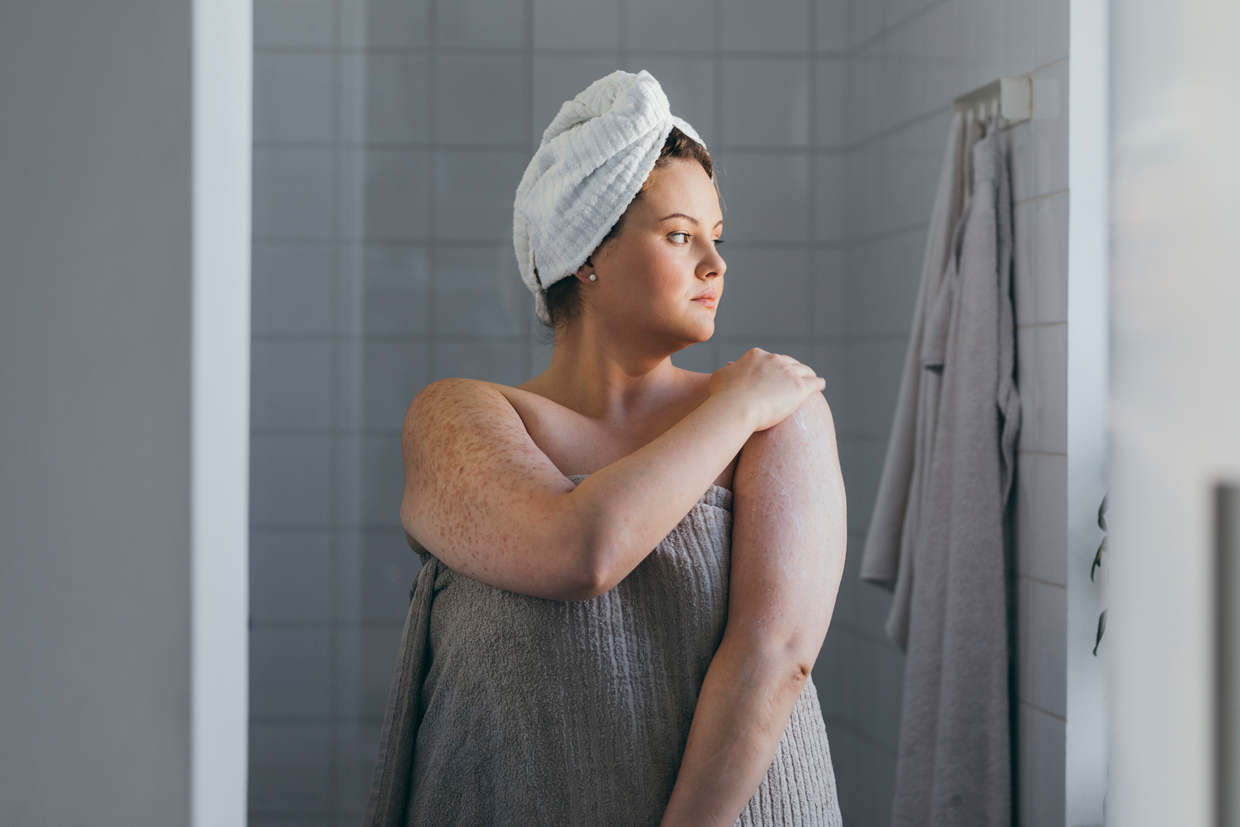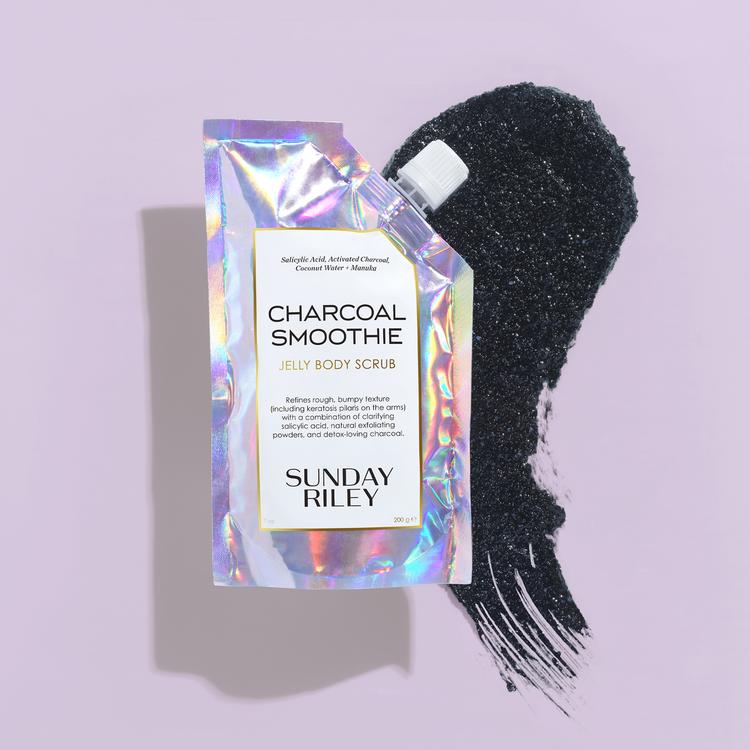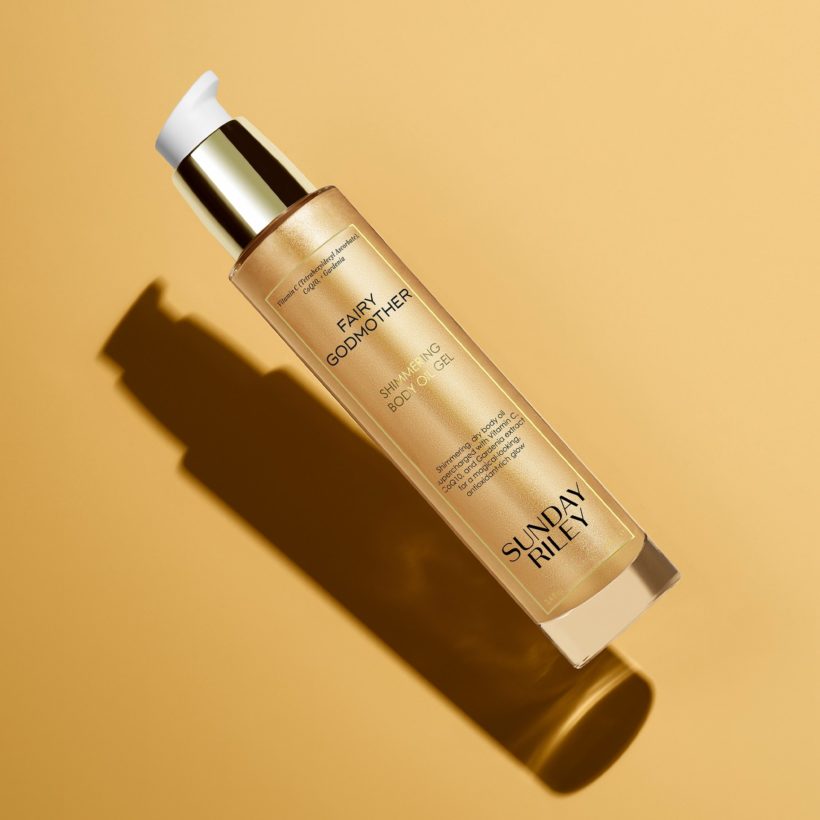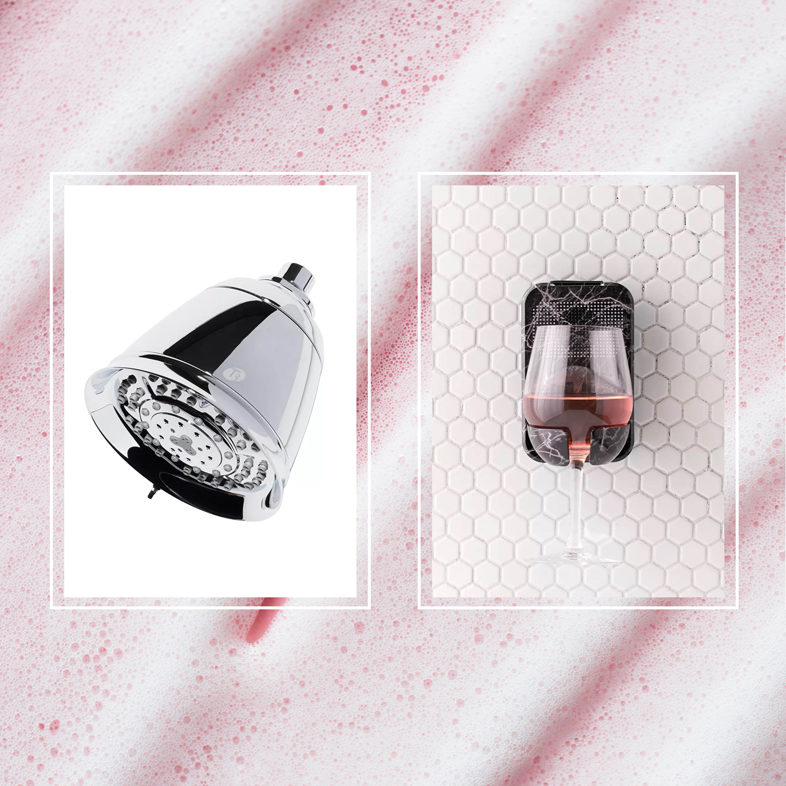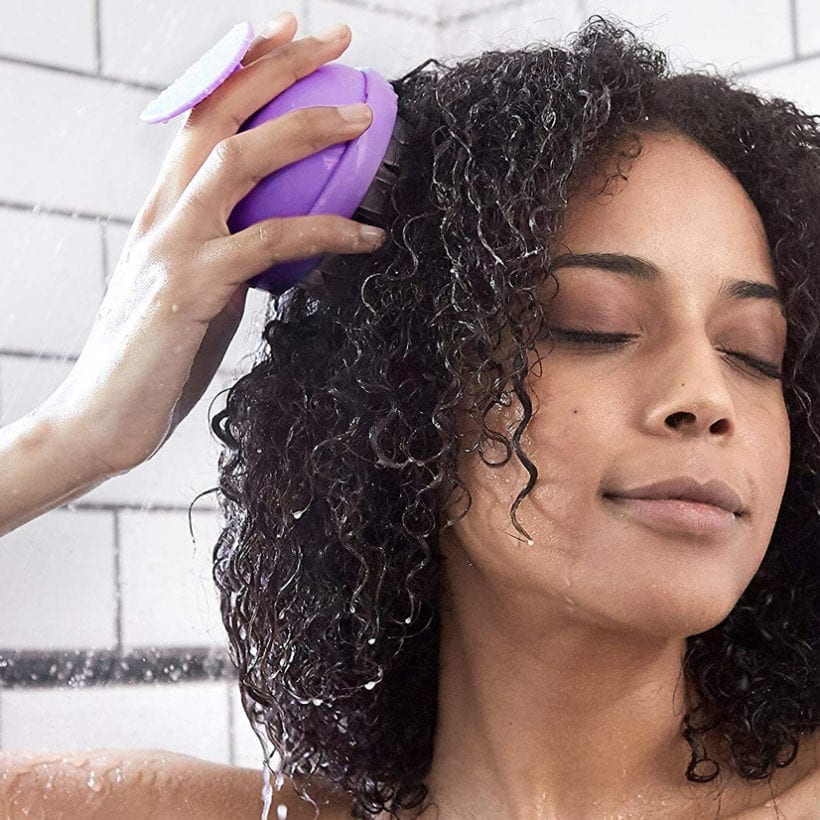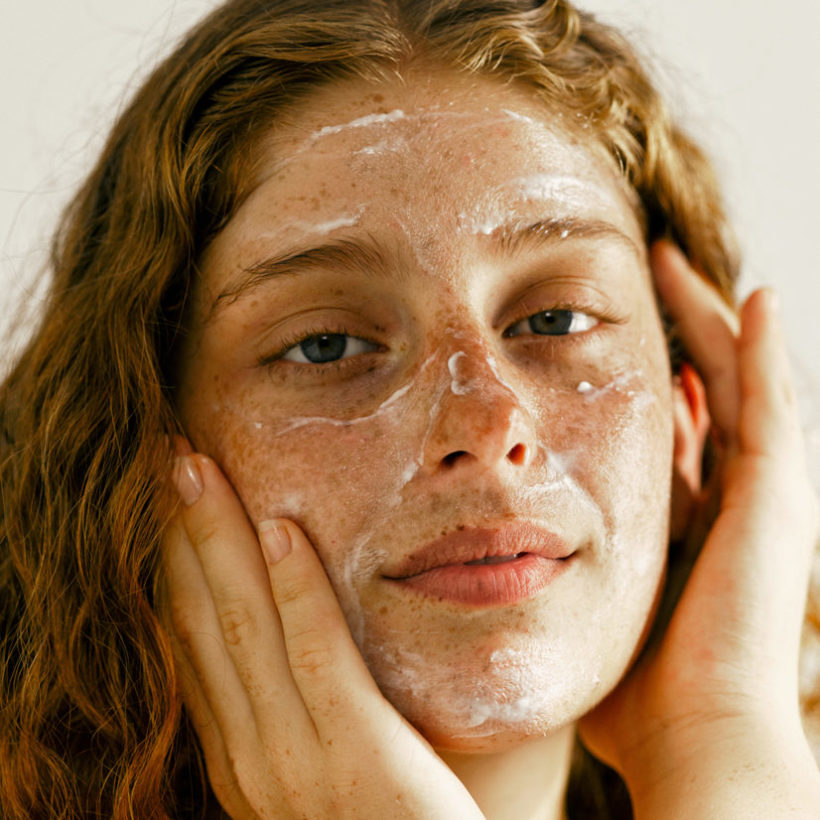Showering seems like one of those no-brainer tasks. After all, 66% of adults shower once a day. Though we all have plenty of experience in showering, it turns out there is a right and wrong way to do the task. Many of us are unknowingly guilty of rather “unsafe” shower practices and are making simple mistakes that can be harmful to our body’s largest organ: our skin.
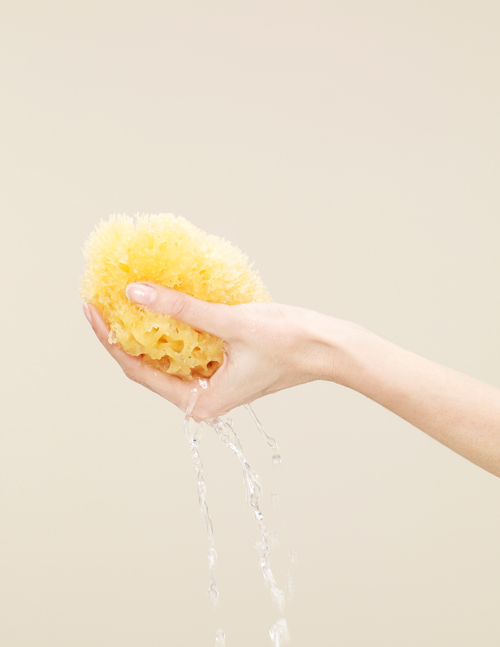
“Several shower mistakes can dry out the skin and compromise the skin barrier, which has subsequent skin health consequences,” explains Blair Murphy-Rose, M.D., a dermatologist at the Laser & Skin Surgery Center of New York and Clinical Instructor of Dermatology at Weill Cornell Medical College. “Also, inferior hair and scalp attention can lead to bothersome flaking and itch. Suboptimal shaving techniques can lead to nicks and even skin infections.”
Our needs for showering vary greatly from person to person and depend upon factors, explains Vanessa Coppola, F.N.P.-B.C., nurse practitioner, aesthetic specialist, and owner of Bare Aesthetic Medical Spa in Wakefield, Massachusetts. “Your body’s natural oil production, the sensitivity level of your skin, your genetic makeup, and your lifestyle choices can all have implications on what you need from your shower experience,” she says. “For example, someone with an active lifestyle that includes daily exercise or frequent outdoor activity would likely benefit from daily showering and bathing with a gentle, balanced cleanser, while an individual residing in a cooler, drier climate may be able to maintain their bathing hygiene by bathing every other day without any significant consequences.”
The goal, Coppola explains, is to strike a healthy balance between being clean and hydrated and maintaining a balance in our skin’s natural microbiome and lipid barrier.
Blair Murphy-Rose, M.D.,
is a dermatologist at the Laser & Skin Surgery Center of New York and Clinical Instructor of Dermatology at Weill Cornell Medical College.
Vanessa Coppola, F.N.P.-B.C.,
is a nurse practitioner, aesthetic specialist, and owner of Bare Aesthetic Medical Spa.
Jennifer Segal, M.D.,
is a dermatologist and owner of Metropolitan Dermatology Institute in Houston.
Diane Madfes, M.D.,
is a New York City-based dermatologist.
Meet the Experts
If you’re looking to optimize your shower experience, here are the shower mistakes skin experts recommend avoiding at all costs.
Showering too often
While showering once daily is usually a fine frequency, any more often than that could have poor implications on the health of your skin, warns Dr. Murphy-Rose. “Excessive hair washing can lead to scalp and hair dryness, irritation, and itching while insufficient hair washing can promote dandruff, flaking, and itching,” she warns. “The only parts of the body that need to be washed every day are the underarms, groin area, and feet — the rest of the body can be just rinsed with water to avoid stripping the natural protective oils on the skin.” If you want to wash your body, but protect your hair, invest in a shower cap to keep your scalp from drying out from excess hair washing. 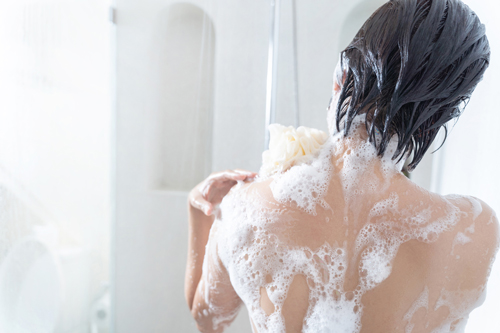
Making the water too hot
There might be nothing better than taking a hot shower on a cold day, but it can wreak havoc on your skin. “Hot water can irritate and dry the skin and rev up the immune response in the skin, making it more sensitive,” explains Jennifer Segal, M.D., dermatologist and owner of Metropolitan Dermatology Institute in Houston. “Sensitive skin can mean anything from being more prone to hives to dry and itchy skin, which worsens conditions such as eczema.” She recommends using warm or lukewarm water to maintain a healthy skin barrier and keep the skin calm, soothed, and glowing.
Showering for too long
Long showers might feel nice and be relaxing, but they can quickly dehydrate your skin. What’s more: Diane Madfes, M.D., a New York City-based dermatologist, points out that extended time in the shower can also strip the barrier and lipids, predisposing the skin to conditions like eczema.
“Our skin has a microbiome that is balanced to protect us,” she says. “Prolonged showering will disrupt our microbiome and lose our innate epidermal barrier function.” She recommends capping your shower off at 10 minutes.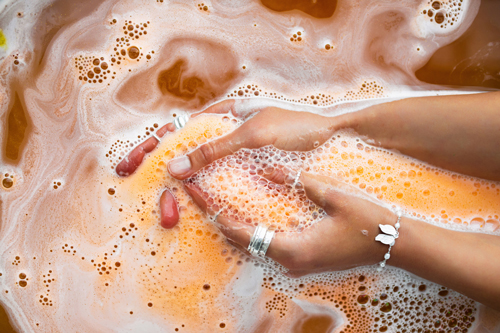
Using products in the wrong order
Coppola recommends shampooing and conditioning before you wash your body so that there is no residue left on your skin from the conditioner. “This is particularly important for individuals who suffer from oily and or acne-prone skin,” she says. “If you wash your body after you shampoo your hair, you can wash away the excess residue from the hair conditioner.”
Using fragranced body scrubs
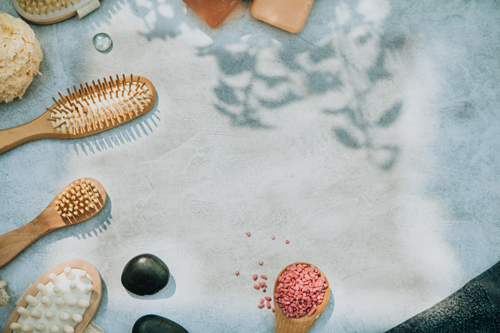
Fragranced scrubs might be everywhere, but Dr. Segal warns that they are typically not conducive to healthy and glowing skin as their packaging claims. “Fragrances can be irritating, and over-exfoliation with scrubs (easy to do in the shower!) dulls the skin and makes it more sensitive,” she says. Instead, she recommends a soothing cleanser in the shower, followed by a lactic acid-based exfoliator after the shower. “This not only prevents skin irritation and eczema but also gives the skin the healthy glow one usually seeks in an exfoliating scrub,” she adds.
Not moisturizing immediately
You probably know the importance of moisturizing your skin, but might not be doing it immediately after stepping out of the shower. Doing so, according to Dr. Segal, helps the emollient retain the moisture from the shower, “trapping” the moisture in the skin to enhance and maintain the skin barrier. “Allowing the skin to dry completely before moisturizing contributes to dry skin, and prevents the ability to take advantage of this opportunity to enhance the effect of the moisturizer,” she says. “Timing is everything!”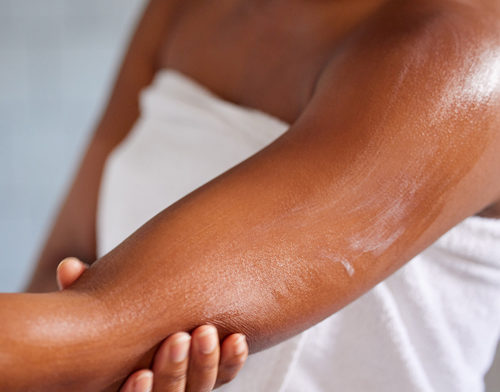
Shaving right away
Coppola recommends saving shaving for the last activity in the shower. “Shaving last allows ample time [to soften your skin] to allow for a closer shave. Importantly, you want to shave on clean skin so that if you have any tiny nicks or tears, you’re not introducing bacteria into an open wound,” she says.
We only recommend products we have independently researched, tested, and loved. If you purchase a product found through our links, Sunday Edit may earn an affiliate commission.
